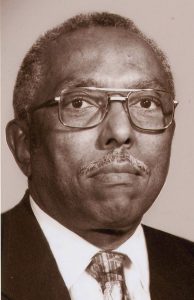Dr. Henry Waiters: Hell, part 2
Published 12:00 am Saturday, July 6, 2019

Henry Waiters, ThD
In the New Testament the Greek Hades is used in much the same sense as Sheol in the Old Testament. Hades in the New Testament appears to be the world of present and future punishment (Matthew 11:23, 16:18; Luke 16:23).
Hades, A New Testament Greek term rendered “hell,” does not appear in the English Bible, either as a general or proper name, but it is found 11 times in the original. Hades and Sheol have a similar significance. Hades refers to the underworld (heart of the earth), region of the departed, subterranean abode of all the dead until judgement, the intermediate state between death and resurrection. (Matthew 11:23, 16:18; Luke 10:15, 16:23; Acts 11:27, 31; I Corinthians 15:55; Revelation 1:18, 6:8, 20:13, 14).
The A.V. renders the word “hell” in every case with only one exception, I Corinthians 15:55, where it gives “grave.” The R.V., however, substitutes “hades” for “hell,” leaving the word untranslated, thus representing the original idea. It is not to be denied that the distinction thus recognized between “hades” and “hell” as a place of misery is a valid one. Our Lord, in certain of his words, associated judgment and suffering with the condition of some of the inhabitants of “hades” (Matthew 11:23, Luke 16:23).
The Hebrew Sheol is the equivalent for Hades and is likewise the subterranean abode of all the dead until judgment. It was divided into two compartments, Paradise or Abraham’s bosom for the good, and Gehenna or hell for the bad. To better understand the event, one must know that at death, the spirit of man returns to God, the never-dying soul is carried by angels to the place it is prepared for, and the body is buried or cremated. If saved, the soul is carried to paradise, if unsaved it is carried to hell. The spirit returns to God unaccompanied, but the soul is carried by two angels — God’s angels to paradise, Satan’s angels to hell.
Upon arrival in paradise the soul receives a temporary body with no identifying features of the physical body. Souls arriving in hell also receive identifiable bodies that feel and are tormented. Luke 16:19-31, the account of the Rich Man and Lazarus, indicated the arrangement in hades before the ascension of Christ.
Before the ascension, Hades was in two compartments, the domiciles respectively of saved and unsaved souls. “Paradise” and “Abraham’s bosom,” both common Jewish terms of the day, were abandoned by Christ in Luke 16:22 and Matthew 8:11, to designate the condition of the righteous in the intermediate state. The blessed dead being with Abraham were conscious and “comforted” (Luke 16:25). The unsaved were separated from the saved by a “great gulf fixed” (Luke 16:26). The Rich Man, who is still in hades, is a representative case and describes the unjudged condition in the intermediate state of the wicked. His never dying soul was (is) alive, embodied and identifiable, fully conscious and in exercise of his mental faculties, and also tormented.
It is apparent that insofar as the unsaved departed are concerned, no relocation of their abode or state is revealed in connection with the ascension of Christ. At the sinners’ judgment (Great White Throne), Hades will surrender the wicked. They will be judged for their degree of sin and cast into the “Lake of Fire” (final destination, Revelation 20:13, 14) where their embodied, never-dying souls will experience greater torment than in hades forever.
With regard to the state of the saved and the new location of Paradise, before his ascension Christ made a drastic change. He moved paradise from across the gulf from Hades (the underworld) to the new location in the sides of the “North” in the “third heaven,” the immediate presence of God. This is where Satan desires to be (Isaiah 14:12-14).
After Christ moved all souls from paradise below to paradise above, He removed the gulf that separated the two and expanded hades to accommodate the lost. The saved benefited greatly, for now they cannot look across the gulf and see the suffering of the lost. They can enjoy that peace, tranquility and heavenly fellowship without distraction.
The Apostle Paul was “caught up to the third heaven, into paradise” (II Corinthians 12:1-4). The redeemed who die are “absent from the physical body, at home with the Lord” (II Corinthians 5: 6, 8).
The wicked by contrast are in hades, awaiting the Great White Throne judgement (condemnation); and the righteous, the Judgment Seat of Christ for rewards and final Glorified Body like Christ’s.
Dr. Waiters can be reached at 704-636-3369.



